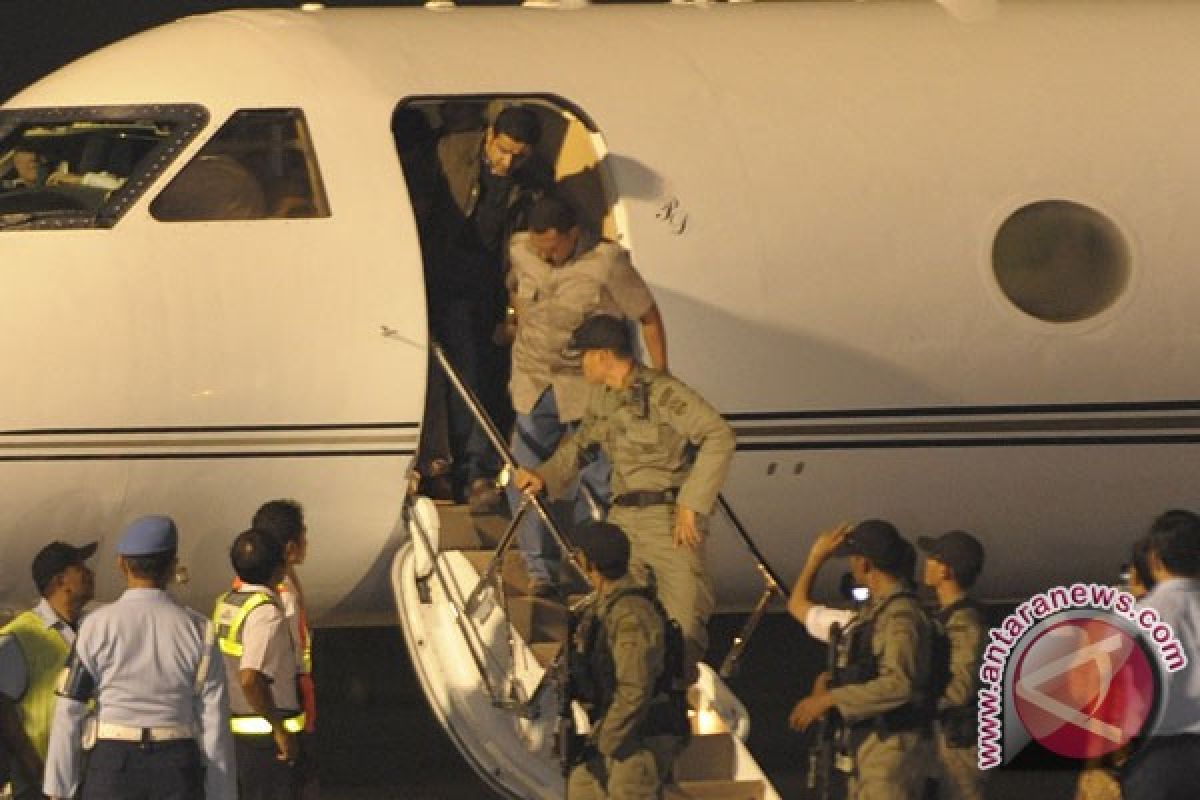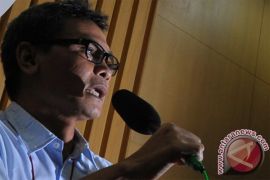Nazaruddin, a former treasurer of the ruling Democratic Party (PD) who was arrested recently in Cartagena, Colombia, for a corruption case linked to an athlete`s village project in Sumatra, was flown home to Indonesia with a chartered Gulfstream jet plane.
The repatriation cost, which includes the chartered plane fee, amounting to Rp4 billion, sparked controversies and calls on the KPK to explain it openly.
Lawmakers urged the KPK to openly explain the reasons and details of the expenses.
Secretary General of the Indonesian Democraticic Party of Struggle (PDIP) Tjahjo Kumolo said here on Sunday that it was ironical for the repatriation of the legal case suspect to be flown home on a chartered private jet plane at such a vast amount of money.
"They can use a commercial plane for efficiency and effectiveness reasons. The KPK should explain it openly," Tjahjo said.
He said that actually as long as it could show clear results, there was no problem for the state to spend such big amount of money in hunting down a suspect who was expected to reveal certain very important legal cases.
Tjahjo then made a satirical remark saying that the KPK did not, however, take the same action fairly against all suspects fleeing overseas. According to him, the arrest of Nazaruddin marked the end of the first episode of a dramatized case by the KPK with an extra-ordinary effort involving the Interpol, the government, law enforcers, observers, the media, politicians and all of the people of Indonesia.
"It is extraordinarily great, its fragmentation outbalances a terrorist fugitive who is hunted down by the Interpol. I am dreaming of the same steps to be taken by the KPK in hunting down and finishing the suspects of other scandals," he said.
A similar view was also expressed by Desmon J. Mahesa, a member of the DPR`s Commission III on legal affairs. He said that the KPK should account for the expenses it had spent in the process of arresting and repatriating Nazaruddin.
He said that he would ask the House Commission III to summon the KPK and all legal auhorities involved in that process to question the cost which reached Rp4 billion. "Where did the money come from? We have the right to know. Did it come from the state? From what institutions, or did they have donors. We also questioned the capability KPK in carrying out the investigation," Desmon said.
He said that a study must be made to know how far the essence and impact of Nazaraddin`s repatriation could have on the fight against corruption.
Desmon said that he was afraid the ways the law enforcers used -- which left the impression the suspect had been pampered-- were part of operations to silence Nazaruddin so that he would not reveal the crime any further.
"So, we should be careful to see whether the KPK or Nazaruddin is wrong. Whether Nazaruddin was really arrested in the real sense or else. All the processes in the arrest are a mystery," he said.
In the meantime, legislator Basuki Eka Purnama of the Golkar Faction in the House said that the KPK should not have an option from the beginning to hire a private jet plane in the repatriation of Nazaruddin.
He said that the KPK should have planned to use a business class or a regular aircraft. "The important thing is that the KPK should be able to show a result that would not condone the public perception that there has been a fabrication or a deal between the law enforcers and the suspect," he added.
The Indonesia Corruption Watch (ICW) has also raised the same question. "All expenses must be accounted for. The government must maximize the use of its facilities," Emerson Yuntho of the ICW said meanwhile.
He said the state should have spent less and should not have sent such a large number of people to repatriate Nazaruddin.
Therefore, the ICW also questioned the case of searching and repatriating other suspects included in the list of wanted people, such as the case of Nazaruddin. "It is not clear which budget heading the funds came from. If the funds are taken from a number of ministries which had no budget for it, then it would have the potential to create a new form of corruption," he said.
He expressed doubts that the amounts of funds used to repatriate suspects were manipulated while the amounts of corrupted money returned by corruptors did not commensurate with the repatriation cost.
"So, there must be a fair balance between the amounts of repatriation cost and the amounts of money returned by the corruptors," he said.
The Corruption Eradication Commission (KPK) said earlier the Rp4 billion cost for returning graft suspect Nazaruddin to Indonesia did not cover the fee of a chartered flight only. "As one of our deputy chiefs, Chandra Hamzah, has stated, the KPK did not only bear the cost of chartering a plane," KPK spokesman Johan Budi said.
He said the costs of bringing Nazaruddin home amounting to Rp4 billion were also spent on the accommodation and transportation of members of the joint team which picked up Nazaruddin in Colombia.
"So, it is not totally true that the KPK spent Rp4 billion (the plane`s charter fee) only for the chartered plane," he said.
Nazaruddin was flown back to Indonesia using a hired jet plane with a capacity for 12 passengers, including the pilot and co-pilot.
Nazaruddin together with the joint team of investigators left Bogota, Colombia, on Friday (Aug 12, 2011) at 6 am Western Indonesian time (WIB) and arrived in Indonesia on Saturday afternoon (Aug. 13, 2011).
Nazaruddin, who is also member of Commission VII energy, mineral resources, research and technology affairs of the DPR, is a graft suspect linked to the construction of a SEA Games athlete`s village in Palembang, South Sumatra. He fled to Singapore a day before the KPK asked the ministry of justice and human rights to issue a travel ban on him on May 23.
He had been to several countries before he was caught at 2 am local time in Cartagena, Colombia, on Monday (Aug 8, 2011).
(T.A014/H-NG)
Reporter: by Andi Abdussalam
Editor: Priyambodo RH
Copyright © ANTARA 2011










